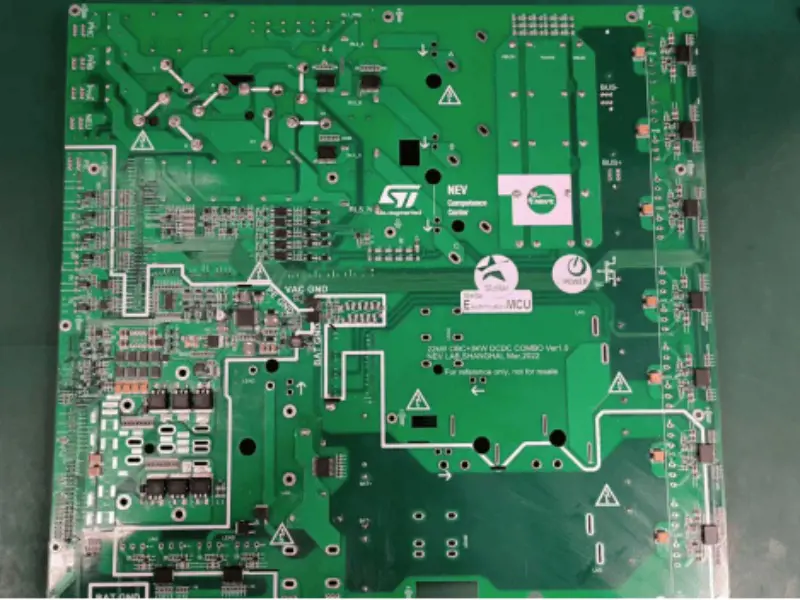How Cloud Technology is Revolutionizing Healthcare
Healthcare providers worldwide are recognizing the true potential of cloud-based healthcare solutions. According to BCC Research, the compound annual growth rate for cloud computing services and solutions is expected to maintain a 15% growth rate by 2025. By 2025, the cloud-driven healthcare market is expected to reach $55 billion. Today, over 83% of the healthcare industry is implementing the cloud by replacing outdated data systems to streamline business operations.
Cloud-based applications are being used to keep hospital operations running smoothly, analyze patterns in unstructured data to aid in better diagnoses for doctors, and enable patients to remotely access their test reports and prescriptions securely stored in the cloud. Cloud provides operational, functional, and economic benefits to all stakeholders, including patients, doctors, and healthcare organizations.
Let's examine how cloud computing revolutionizes patient care, data security, diagnosis, and more in the healthcare industry.
Centralized Access to Medical Records
Not too long ago, almost all hospital patients had separate medical records for their various doctors to access. Maintaining and managing paperwork took a lot of work for doctors and staff.
Now, it has been replaced and made simple through cloud migration. Today, all files or reports are located in one centralized location that can be accessed through a portal website in healthcare centers. Organizations can use AWS S3 service in AWS or Blob storage in Azure to store and retrieve medical record files. Additionally, the system can set up regular backups using managed services provided by AWS, such as Glacier. Patients no longer have to keep track of physical files, and doctors can collaborate smoothly. With the help of a reliable and secure cloud platform, information can be accessed anytime and anywhere.
This will help doctors diagnose patients quickly based on fast access to medical records saved in cloud storage, such as AWS S3, Azure Blob storage, or AWS-managed hosting solutions and Azure virtual machines.
Secure Medical Records in Compliance with Healthcare Standards
Cloud-driven healthcare solutions are more secure and efficient compared to physical records. Data stored in the cloud can only be accessed by relevant healthcare providers when needed. This helps avoid any unnecessary situations that may arise due to information leakage. For example, well-known cloud platforms such as AWS, Azure, and GCP also enable covered entities and their business associates who are bound by the Health Insurance Portability and Accountability Act (HIPAA) of 1996 to use a secure cloud provider environment to process, maintain, and store protected health information. This ensures patient data security and prevents misuse.
Effective Patient Engagement Enhances Patient Care
Cloud-based healthcare solutions can enhance patient care. Patients can easily schedule appointments with their doctors with just a few clicks. With the help of cloud platforms, automatic reminders can be sent to doctors and patients through AWS simple notification services (such as SMS or email).
Follow-ups with patients can also be executed through such services. The cloud platform can handle timely interactions with doctors after surgery, medication usage reminders, upcoming facility information, and more use cases. Doctors can remotely monitor patients' vital signs using cloud-connected medical infusion pumps.
Healthcare Analytics for Better Decision Making
Healthcare organizations utilize cloud-based machine learning models and other advanced solutions to execute clinical and medical device data analysis to achieve accurate and insightful discoveries, visualizations, and diagnoses. The quantity and types of structured, unstructured, and streaming data in the healthcare and life sciences industry require highly scalable platforms to store and analyze data and run predictive models that support real-time decision-making.
To illustrate this point, AWS Cloud Watch Synthetics supports 24x7 monitoring of end-user devices (which can be any critical monitoring device) every minute of the day and alerts you when the behavior of an application endpoint does not match expectations. Cloud Watch Synthetics supports monitoring REST APIs, URLs, and website content, checking for unauthorized changes such as phishing, code injection, and cross-site scripting.
Increased Scalability in any Situation
In addition to being efficient and reliable, cloud-based healthcare solutions offer Scalability, which provides flexibility in scaling up/down infrastructure to accommodate new data as required immediately.
The best example is the current pandemic caused by Covid, which put healthcare systems in a very difficult position. Cloud solutions may be the best option for such unforeseen situations.
Many hospitals strongly recommend and use AWS Auto Scaling and Load Balancing services in the current scenario.
Economical and Efficient Solutions with Custom Payment Models
With the help of cloud infrastructure, organizations can eliminate expensive local computer networks.
This significantly reduces the overall costs associated with IT personnel and other related local infrastructure monitoring and management solutions. Additionally, you don't have to worry about any updates or adopting new changes because they can be smoothly completed immediately with the help of cloud service providers.
Cloud platform providers like AWS and Azure offer pay-as-you-go methods for over 160 cloud services. Using this model, you only pay for the individual services you need as long as you use them, and there are no long-term contracts or complex licensing requirements.
Their pricing calculator tools also help understand service costs in advance.
Those mentioned above are ways the cloud can change the healthcare industry. It also helps to reduce IT costs, improve data backup, prevent data loss, integrate medical devices, and more.






